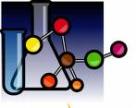A few years ago, a group of South Korean scientists started a scientific sensation, reported a breakthrough in cloning of human embryonic stem cells. This has always been considered as the holy grail of biotechnology reasearch with wide clinical applications, bringing cures to many incurable diseases. One of the world’s most respected journals – Science – published 2 of the reports in 2004 & 2005. But then as meteoric as the rise, the reports were later found to be erroneous and the sensation soon evaporated into illusive hype with consequential disgrace to the team. In fact the works were not truthful and found to be fabricated! That was one of the most high-profile scandals and scientific frauds I have ever read in my work life. The news must have invoked mixed thoughts and it'd be perfectly reasonable to question if the sanctity of scientific professionalism, independence and ethics were still alive?

Recently, Wall Street Journal reported an interesting article (click here) which analysed the “mistakes in scientific studies” and trend of retractions in scientific publications. The tabulation shows something really telling:

PubMed also has been candidly tracking the extent of research works that have taken a wrong turn as another retrospective evidence. They charted the total number of scientific publications & computed the retraction notices by year since 1997 (click here). The chart shows a steady upward trend in the number of publications published and also the alarming increase in retractions.

At the turn of a new millenium in 2000, 528'306 publications were tracked & 4.35 per 100K publications were retracted; 10 years later in 2010, 920'729 papers were published with retraction rate climbed to 31.7 per 100K. Total number of publication increase by 1.74-fold; but the number of retractions spiked disproportionately by 7.2-fold. By the way, the 2011 statistics shows that the trend is unabated. Up until July 2011, the retraction rate stood at 37.6 per 100K!
So what conclusion can we draw here? There are now more publications, more detection, more reporting, greater scrutiny, coupled with more educated audience; and also perhaps the public demands more accountability and thus the laws react by being much less forgiving?!

Prospectively, frauds involving persons in scientific high places are not in short supply. In 2009, US Department of Justice convicted former CEO of InterImmune Inc. - W. Scott Harkonen - for wire fraud relating to the dissemination of false and misleading statements about the results of a clinical trial. (see here).
In another case involving a CRO engaged by a US multi-national pharma, 2 employees of CRO from Lee Research Institute were charged with one count of conspiracy, three counts of mail fraud, and one count of falsifying information required by the FDA. (see here). Both cases typified the early stages of what would otherwise constitute scientific misconduct had the clinical trial reports were manuscripted and published in any of the scientific journals.
What about the duty of the publishers, many of them are highly respected authorities but are now increasingly facing challenges of an unprecedented scale. Can they continue to be respected and continue the legacy of their glorious past? The challenge here is editor of most journals lack the ability and resources to monitor such high level “mistakes & misconducts”. So the burden should in fact be rested on the shoulder of the researchers and their peers who review the manuscripts?! Then the question to ask is why some resort to fraud? The simple answer to that is the stakes are high, there is a lot to be gained. To successfully publish an article in a respectable journal means a lot to both researchers and journal editors alike. The Lancet editor Richard Horton summed it all up when he told the Wall Street Journal (click here). “The stakes are so high. A single paper in Lancet and you get your chair and you get your money. It’s your passport to success.” Indeed, many researchers will be showered generously with research grants when they publish in highly respected scientific journals. The rest are details for negotiaton!

Don’t get me wrong, most of the scientific works are NOT fraudulent, sloppy or mistake-ridden. Majority have done good and they drive science & technolgoy, save lives, relieve sufferings; and certainly bring fame and many benefits to the researchers personally, their institution and country as a whole; they also inspire the future generations – a sort of role model for a better world. So perhaps we and our children, and more definitely our children’s children will benefit from the scientific advancement.
It’s on this positive note that we should move forward, taking some high-profile blunders, mistakes or frauds in its wake! Surely, the day will come when Prof. Hwang Woo-Suk’s pioneering works on embryonic stem cell cloning will succeed and mankind will benefit immensely, one day! And by then, we can say that the sanctity of scientific professionalism, independence and ethics are indeed still very much alive, and shall deliver the promise it astutely set out to achieve.
Have a nice day!
Ng Cheng Tiang
Past President, PSS


